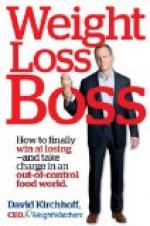of death, their feeling for these old-timers, who
had faced death so often, amounted to hero-worship.
It was good to hear them deriding the caricature of
the typical Briton, which had served in their mental
galleries as an exact likeness for so many years.
It was proof to me that men who have endured the same
hell in a common cause will be nearer in spirit, when
the war is ended, than they are to their own civilian
populations. For in all belligerent countries
there are two armies fighting—the military
and the civilian; either can let the other down.
If the civilian army loses its
morale, its
vision, its unselfishness, and allows itself to be
out-bluffed by the civilian army of Germany, it as
surely betrays its soldiers as if it joined forces
with the Hun. We execute soldiers for cowardice;
it’s a pity that the same law does not govern
the civilian army. There would be a rapid revision
in the tone of more than one English and American
newspaper. A soldier is shot for cowardice because
his example is contagious. What can be more contagious
than a panic statement or a doubt daily reiterated?
Already there are many of us who have a kindlier feeling
and certainly more respect for a Boche who fights
gamely, than for a Britisher or American who bickers
and sulks in comfort. Only one doubt as to ultimate
victory ever assails the Western Front: that it
may be attacked in the rear by the premature peace
negotiations of the civil populations it defends.
Should that ever happen, the Western Front would cease
to be a mixture of French, Americans, Canadians, Australians,
British and Belgians; it would become a nation by itself,
pledged to fight on till the ideals for which it set
out to fight are definitely established.
We get rather tired of reading speeches in which civilians
presume that the making of peace is in their hands.
The making may be, but the acceptance is in ours.
I do not mean that we love war for war’s sake.
We love it rather less than the civilian does.
When an honourable peace has been confirmed, there
will be no stauncher pacifist than the soldier; but
we reserve our pacifism till the war is won. We
shall be the last people in Europe to get war-weary.
We started with a vision—the achieving
of justice; we shall not grow weary till that vision
has become a reality. When one has faced up to
an ultimate self-denial, giving becomes a habit.
One becomes eager to be allowed to give all—to
keep none of life’s small change. The fury
of an ideal enfevers us. We become fanatical
to outdo our own best record in self-surrender.
Many of us, if we are alive when peace is declared,
will feel an uneasy reproach that perhaps we did not
give enough.
This being the spirit of our soldiers, it is easy
to understand their contempt for those civilians who
go on strike, prate of weariness, scream their terror
when a few Hun planes sail over London, devote columns
in their papers to pin-prick tragedies of food-shortage,
and cloud the growing generosity between England and
America by cavilling criticisms and mean reflections.
Their contempt is not that of the fighter for the
man of peace; but the scorn of the man who is doing
his duty for the shirker.




